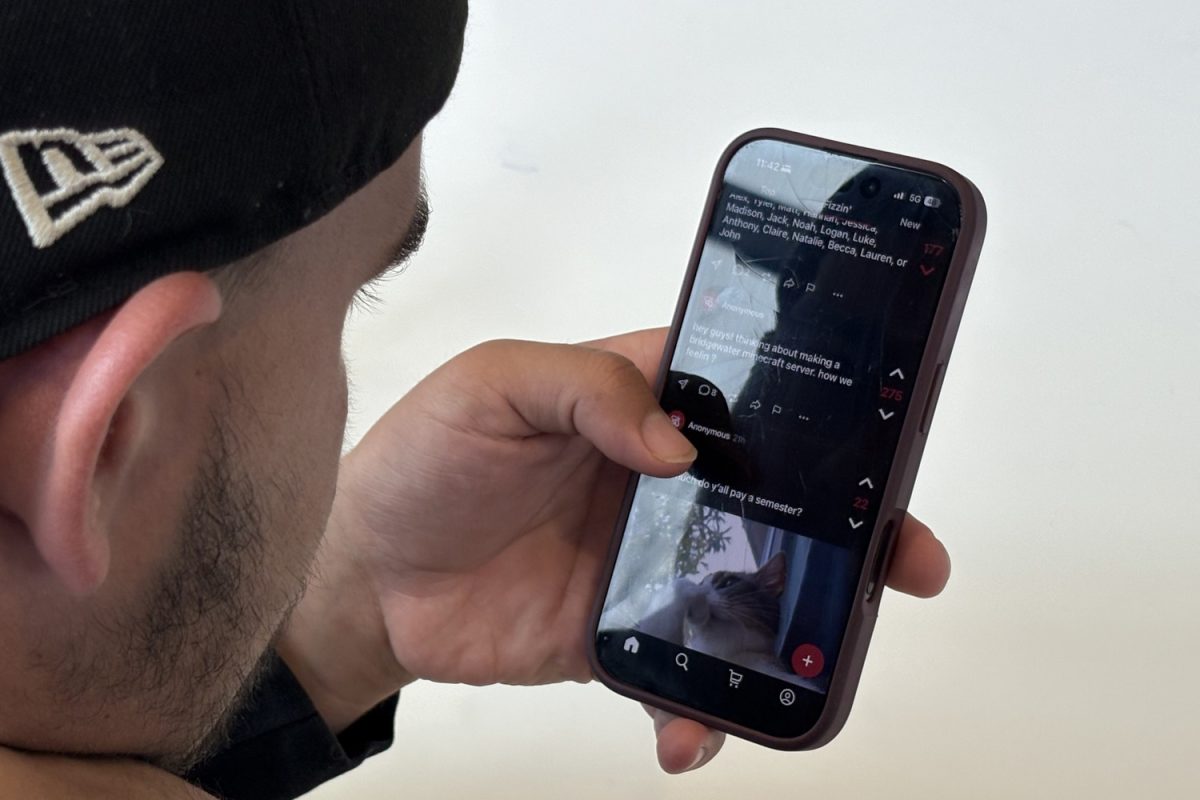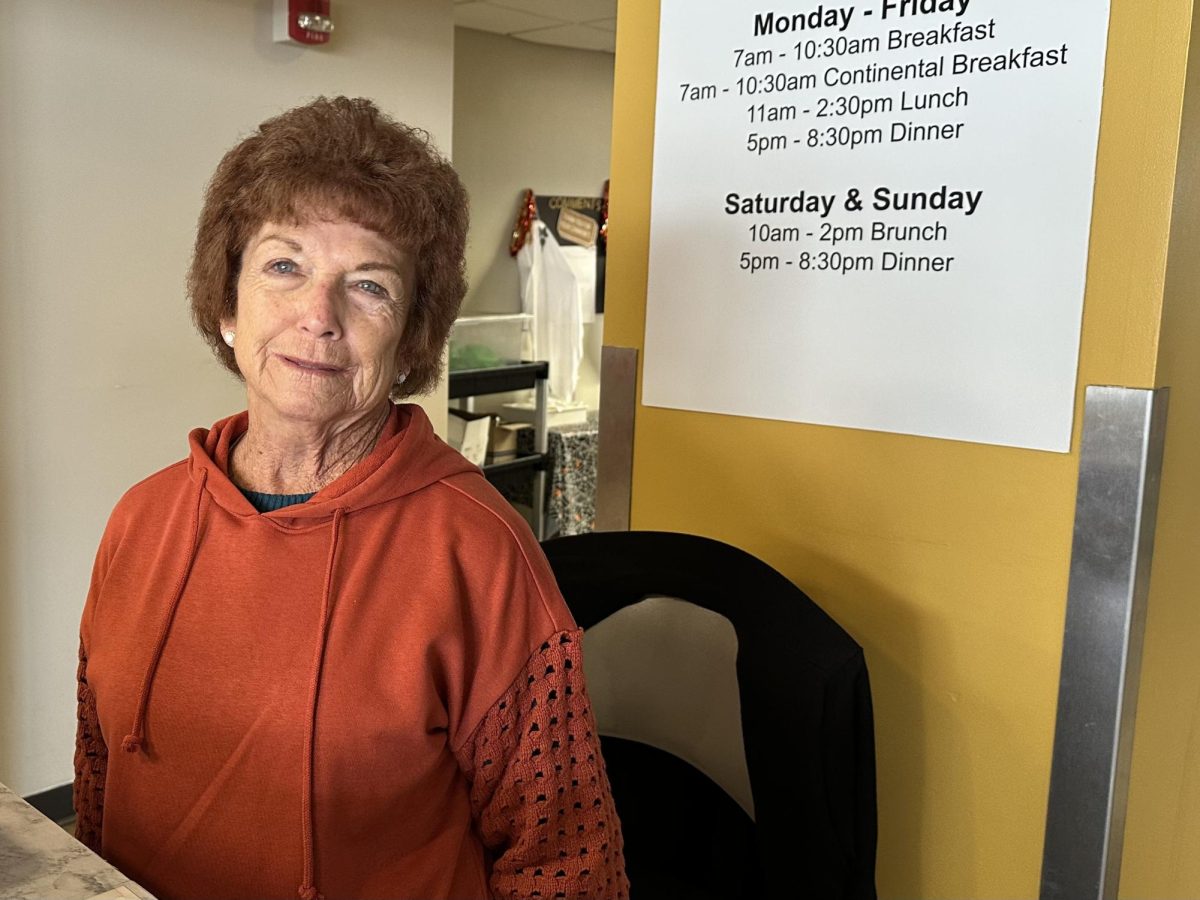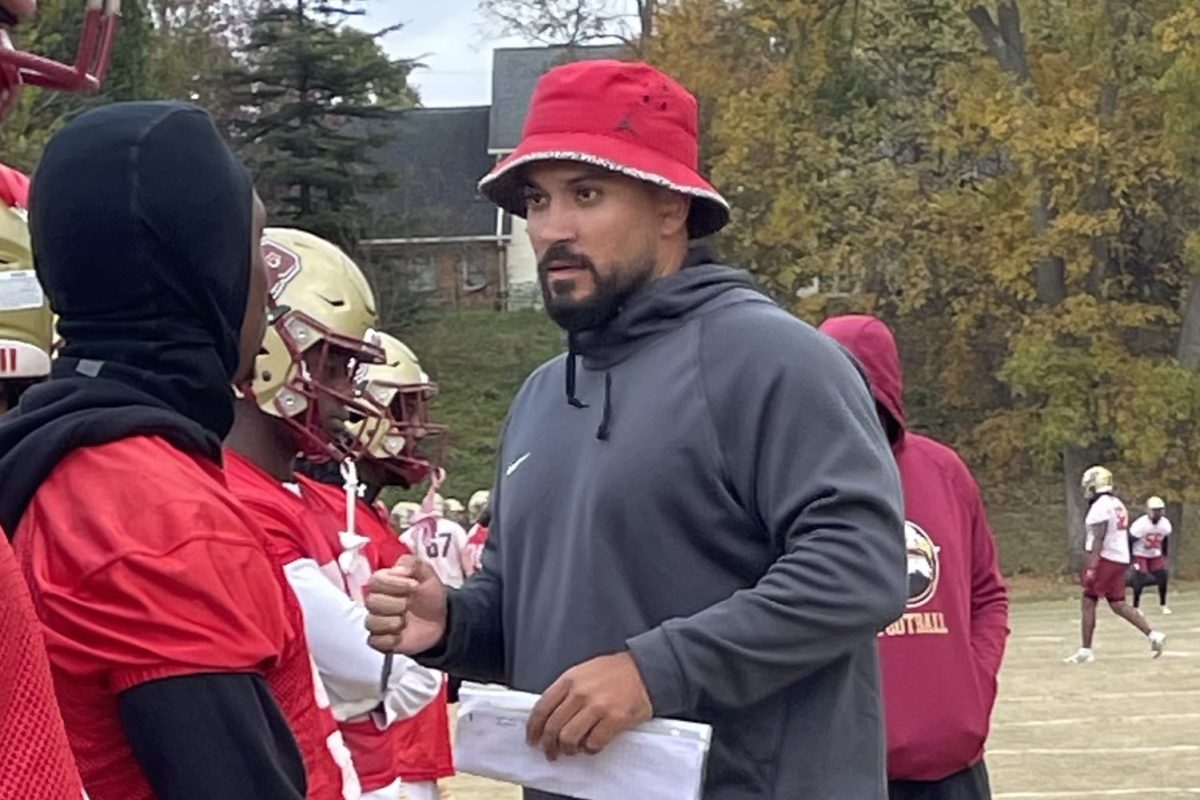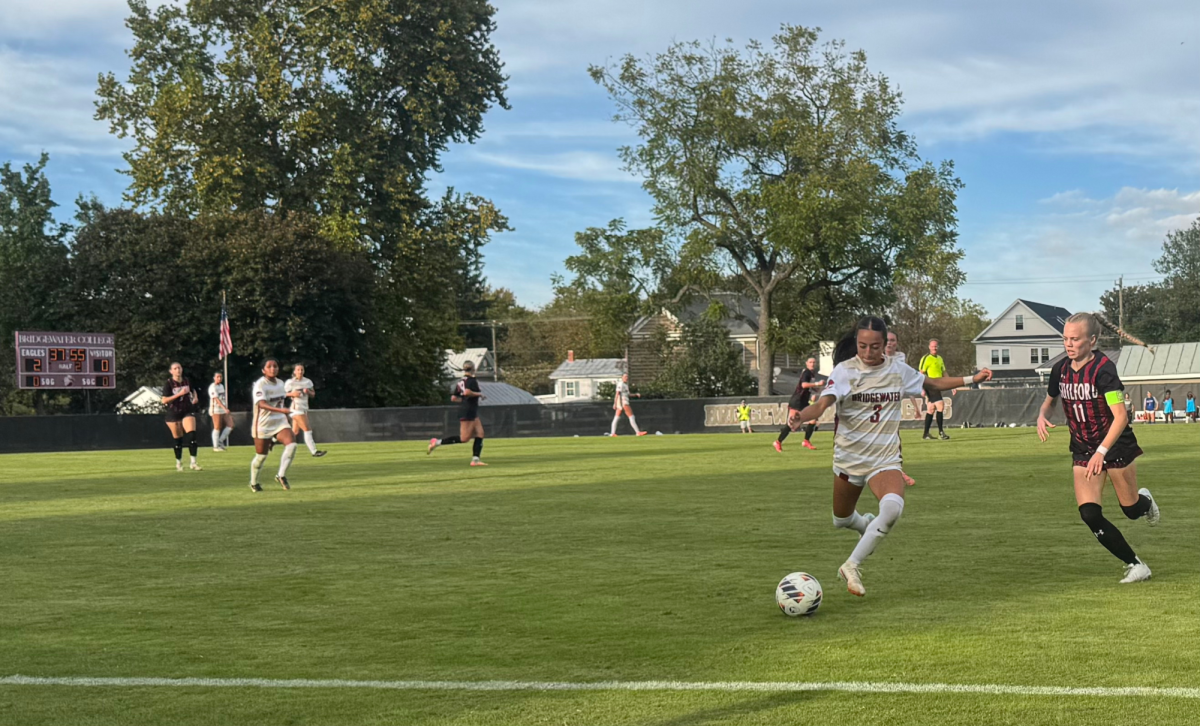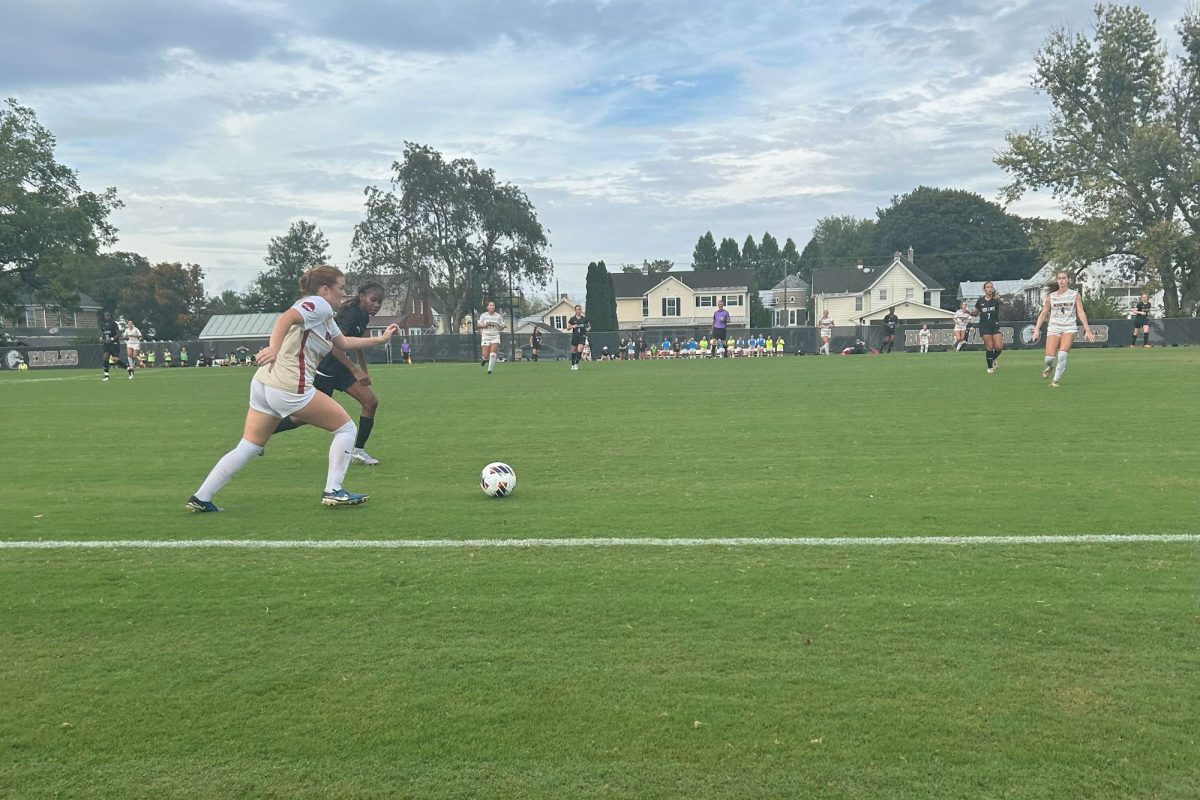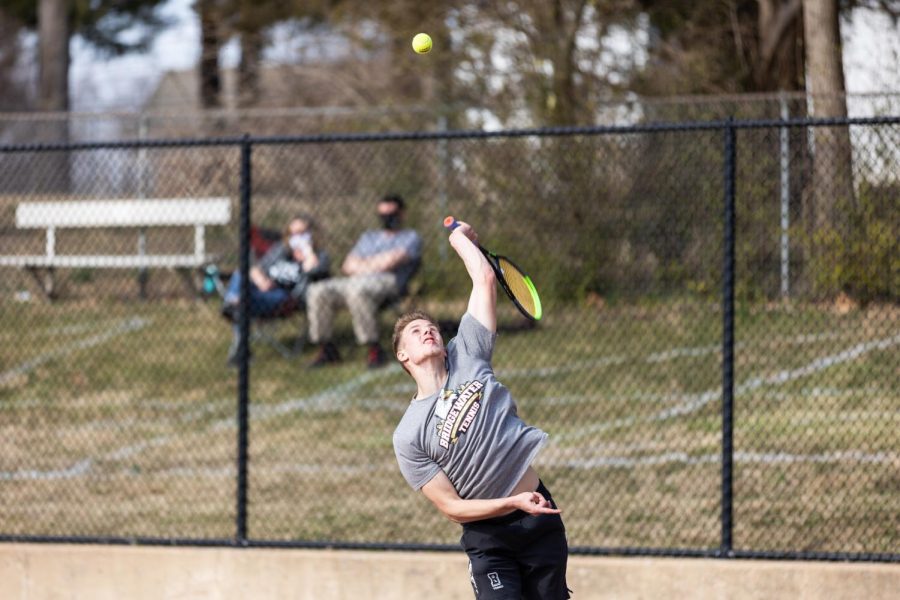Fostering Awareness for Mental Health in Collegiate Athletics
All college students are under significant amounts of pressure to succeed in the classroom, but as a student- athlete, that pressure is amplified by the demands to succeed in athletics as well. Pictured here is BC men’s tennis player and senior Canon Secord. Tennis is a great example of the pressures athletes face, because players are alone on the court at every level.
November 19, 2021
Bridgewater, Va. – Becoming an athlete at either the professional or collegiate level comes with a lot of pressure to perform no matter the stage. Approximately ⅓ of collegiate student-athletes experience symptoms associated with anxiety or depression and approximately 35% of professional athletes experience a form of mental health challenge.
Stories have emerged from several different sports about players dealing with substantial amounts of pressure — which stems from demands to succeed from sponsors, peers and fans. The NBA’s Kevin Love and 23-time Olympic Gold Medalist swimmer Michael Phelps are prime examples of professional athletes who have dealt with mental health in their sport.
Stories that stick out to me come from the professional tennis realm, because of the relatability due to being a tennis player; but also because tennis is a sport that can become very lonely as it is only you on the court for the entire match.
Former top ranked American tennis player Mardy Fish decided to put his mental health first when it came to the pressures of playing at the professional level. Fish was slated to play in the 2012 U.S. Open quarterfinals in Flushing Meadows, New York, in one of tennis’s four grand slams — arguably the biggest match of Fish’s career in the biggest stadium in all of tennis. Instead of taking on the greatest player of all-time, Roger Federer, Fish withdrew from his quarterfinal match in order to put his health first.
Naomi Osaka did something similar in the 2021 French Open when she pulled out regarding her own mental health. Osaka said that she had bouts with depression after her 2019 U.S. Open Championship — where she earned her first Grand Slam triumph.
Another professional tennis player, Stanislas Wawrinka, has a similar story to Fish and Osaka, but he continued and played in his first slam final — which was also in New York at the 2016 U.S. Open. Wawrinka was seen crying and vomiting due to anxiety and nerves before the match. He then went out and defeated the World No.1 Novak Djokovic for his first of three Grand Slam titles.
Collegiate student-athletes are no stranger to the pressures experienced by professional athletes, and in most cases, these amateurs have inadequate resources for addressing the issue of mental health. For example, at Bridgewater College there are counseling services that are open from 8:30 a.m. – 4:30 p.m. Monday-Friday, but no counseling available specifically for athletes. Only 20 NCAA Division I institutions have a sports psychologist on staff, as of 2012. The number of school psychologists has continued to grow since the release of the study, but it still does not meet the demands of collegiate athletics. At the Division III level, the funding is much less and is extremely unlikely that there is enough funds to put towards athletes and their mental health.
If you are wondering how to help bring awareness to mental health concerns for collegiate athletes, a great organization to be involved with is Morgan’s Message and BC is lucky to have a chapter here on-campus led by student-athletes.
Morgan’s Message is dedicated to breaking the stigma surrounding mental health in athletes. This semester, the club held meetings and hosted a “Blue Out” during field hockey’s matchup with Mary Washington on Sep. 25. The organization is also planning on doing another dedication game for the women’s lacrosse team in the spring at a date that is yet to be determined.

